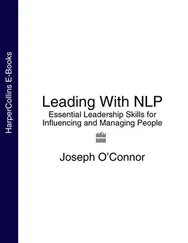John Gray - Children Are from Heaven - Positive Parenting Skills for Raising Cooperative, Confident, and Compassionate Children
Здесь есть возможность читать онлайн «John Gray - Children Are from Heaven - Positive Parenting Skills for Raising Cooperative, Confident, and Compassionate Children» весь текст электронной книги совершенно бесплатно (целиком полную версию без сокращений). В некоторых случаях можно слушать аудио, скачать через торрент в формате fb2 и присутствует краткое содержание. Год выпуска: 1999, ISBN: 1999, Издательство: HarperCollins e-books, Жанр: psy_childs, sci_pedagogy, Психология, на английском языке. Описание произведения, (предисловие) а так же отзывы посетителей доступны на портале библиотеки ЛибКат.
- Название:Children Are from Heaven: Positive Parenting Skills for Raising Cooperative, Confident, and Compassionate Children
- Автор:
- Издательство:HarperCollins e-books
- Жанр:
- Год:1999
- ISBN:978-0-06-133886-1
- Рейтинг книги:4 / 5. Голосов: 1
-
Избранное:Добавить в избранное
- Отзывы:
-
Ваша оценка:
- 80
- 1
- 2
- 3
- 4
- 5
Children Are from Heaven: Positive Parenting Skills for Raising Cooperative, Confident, and Compassionate Children: краткое содержание, описание и аннотация
Предлагаем к чтению аннотацию, описание, краткое содержание или предисловие (зависит от того, что написал сам автор книги «Children Are from Heaven: Positive Parenting Skills for Raising Cooperative, Confident, and Compassionate Children»). Если вы не нашли необходимую информацию о книге — напишите в комментариях, мы постараемся отыскать её.
Children Are from Heaven: Positive Parenting Skills for Raising Cooperative, Confident, and Compassionate Children — читать онлайн бесплатно полную книгу (весь текст) целиком
Ниже представлен текст книги, разбитый по страницам. Система сохранения места последней прочитанной страницы, позволяет с удобством читать онлайн бесплатно книгу «Children Are from Heaven: Positive Parenting Skills for Raising Cooperative, Confident, and Compassionate Children», без необходимости каждый раз заново искать на чём Вы остановились. Поставьте закладку, и сможете в любой момент перейти на страницу, на которой закончили чтение.
Интервал:
Закладка:
When children are demanding about their wants, it is usually because they are not getting what they really need.
Likewise, when adults are unhappy because they are not getting what they want, it is because they are really not getting the love and support they need in their lives. The love we need is always available, but we are not seeing it.
Children need boundaries to push up against. When they don’t get them, they are restless and insecure. When they get their way too often, then what they get is never enough. It is only when we are feeling our needs that we can appreciate what we get. Resistance reconnects us to what we need instead of being focused too much on what we want.
When parents listen to children’s resistance and appropriately assist them in being aware of their feelings, wants, wishes, and needs, the children learn to be more aware of what is most important and is not tossed around so much by the ups and downs of life. Most adults today suffer from headaches, heartache, stress, distress, backaches, and other illnesses because they have focused too much on what they want and not enough on what they need.
MEETING YOUR CHILDREN’S NEEDS
You can’t always give your children what they want, but you can give them what they really need. If you don’t focus on providing what they need, then you and your children suffer increasing resistance. Contained within a child’s resistance is the greater need to be seen and heard, cared for and loved.
To know themselves, children are completely dependent on how much their parents see and hear them. When a child resists getting ready for school, refuses to eat vegetables, or simply doesn’t listen to your requests, it is a clear message that the child needs more time, attention, understanding, and direction. Your children need you to know what they need and for you to provide it.
In many cases, just the act of listening to a child’s feelings or resistance will give a child what he or she needs. But if a child needs something more, like more structure, then just listening will work only temporarily. Let’s have a look at an example.
A mother might ask her two sons, ages six and nine, to stop fighting. After hearing their resistance and understanding their frustration, the mother is able to bring the children back to feeling more cooperative. However, if those children don’t have enough structure within five or ten minutes, they will begin fighting again.
In this example, besides feeling heard, the children also need some kind of structured activity with rules, otherwise they will require more supervision. In this example, listening to the child is not enough.
When children don’t know what to do they
often forget how you want them to behave.
When you just can’t give your children what they need in the moment, there is another way to get the cooperation you want. These new skills to motivate your children work, but they still don’t replace giving your children what they need.
Though they will create cooperation and motivation, they won’t give children what they need to develop. These skills will get your children to do what you want, when you want it, but your children will still have other needs such as understanding, structure, direction, and rhythm. Just as punishment was used as a deterrent in fear-based parenting, rewards are used to motivate in love-based parenting. In the next chapter, we will explore how to motivate your children.
6
News Skills for Increasing
Motivation
In the past, children have been controlled or motivated to behave primarily by the threat of punishment. When a child starts to misbehave or is uncooperative, most parents’ gut instinct is to threaten the child. We say or feel things like, “If you don’t listen, you’ll really be in trouble” or “If you don’t stop crying, I will give you something really to cry about.”
With little children, we might raise our hand to spank them or give a certain look that means if they don’t cooperate they will be punished. By using punishment the threat of loss, violence, pain, or increased suffering is employed as a deterrent.
Using fear as a deterrent appears to work, but it doesn’t awaken children’s natural motivation to cooperate and to help a parent. As noted earlier, obedience and cooperation are very different. Children need to be a willing helper to be truly cooperative and breaking a child’s will with punishment is not the answer. It is difficult to let go of punishment, because it works so well in the short term. Although we don’t want to punish our children, we just don’t know another way. Punishment seems inhumane, but without it, our children become spoiled, demanding, disruptive disrespectful, or unmanageable.
Most parents don’t want to punish their
children; they just don’t know another way
that works.
Responding to this need for change, some experts suggest “giving children consequences” to their behavior. For example, they take away something as a consequence of misbehaving and instead of calling it a punishment, it is called a consequence. This is an attempt to take the shame out of punishing. Instead of giving the message, “You are bad so you should be punished,” the child gets a more positive message: “It’s okay that you made a mistake, but now you will learn the consequence of your behavior.” Though this technique lessens guilt and is more humane it is still based on fear.
This approach is much better than punishing, but it doesn’t awaken children’s natural desire to cooperate. In a sense, it is a nicer way of saying, “you will be punished.”
A SHORT UPDATE ON PUNISHMENT
Our entire history in the last five thousand years is based on punishment as the model for control and rehabilitation: an eye for eye; justice for the victim; make the abuser pay for the crime. In the past, avengers have felt satisfied, but today this satisfaction is merely a temporary relief and the pain of the victim lives on.
Even practically speaking our system of punishment is not working. Our penal system costs taxpayers $25,000 a year per prisoner. To give one twenty year old a twenty-five-year sentence in jail will eventually cost taxpayers $625,000.
This money certainly doesn’t pay back any debt. Think for a moment how much better that money could be used to prevent the crimes in the first place.
To punish one person with a twenty-five-year
jail sentence will cost taxpayers $625,000.
So much is still based on this out-of-date notion of the efficacy of punishment. Today, if you follow the precept “an eye for an eye,” eventually everyone in the world will be blind. Although we know in our hearts that punishment is out of date, a clear alternative has not yet been realized or discovered.
If you follow the precept an “eye for an eye,”
eventually everyone in the world will be blind.
Today, although rules are important, punishment is not.
One day far in the future as consciousness continues to grow, even rules will not be important. In the past, punishment was important because people were not yet capable of knowing what was right within their own hearts and minds; making sacrifices to their Gods and punishment to the wicked was the only way to motivate them.
WHY AND WHEN PUNISHMENT WORKED
Inhumane punishment directly caused pain (cutting off a finger or whipping or stoning someone) while more civilized punishment would take away money (fines) or freedom (prison). In a more humane manner, civilized punishment caused people to feel the pain of loss. To be a better person and avoid making mistakes, many people worshipped God by making offerings or sacrifices. By giving up something for God, they felt the pain of loss, and as a result they became more aware of right and wrong or the best course of action for them. Making sacrifices to God had clear benefits.
Читать дальшеИнтервал:
Закладка:
Похожие книги на «Children Are from Heaven: Positive Parenting Skills for Raising Cooperative, Confident, and Compassionate Children»
Представляем Вашему вниманию похожие книги на «Children Are from Heaven: Positive Parenting Skills for Raising Cooperative, Confident, and Compassionate Children» списком для выбора. Мы отобрали схожую по названию и смыслу литературу в надежде предоставить читателям больше вариантов отыскать новые, интересные, ещё непрочитанные произведения.
Обсуждение, отзывы о книге «Children Are from Heaven: Positive Parenting Skills for Raising Cooperative, Confident, and Compassionate Children» и просто собственные мнения читателей. Оставьте ваши комментарии, напишите, что Вы думаете о произведении, его смысле или главных героях. Укажите что конкретно понравилось, а что нет, и почему Вы так считаете.












